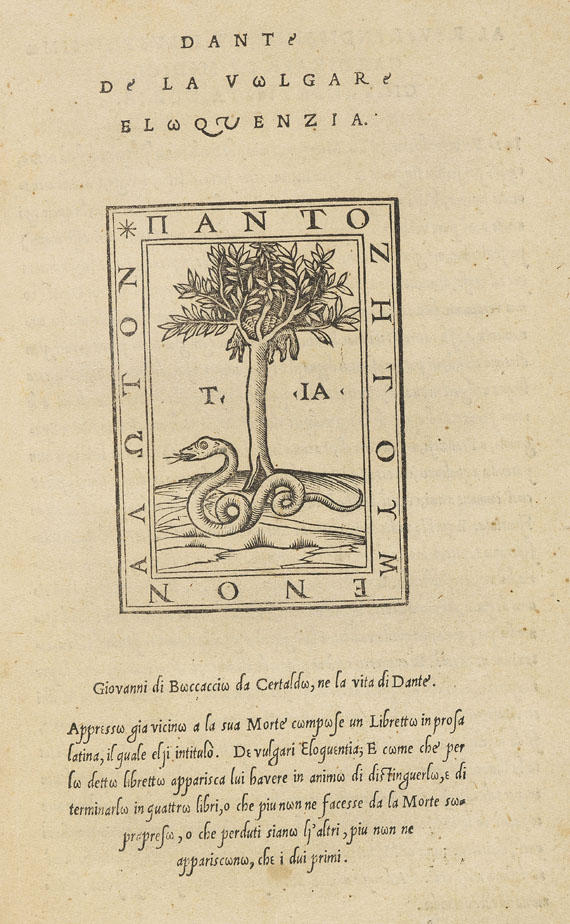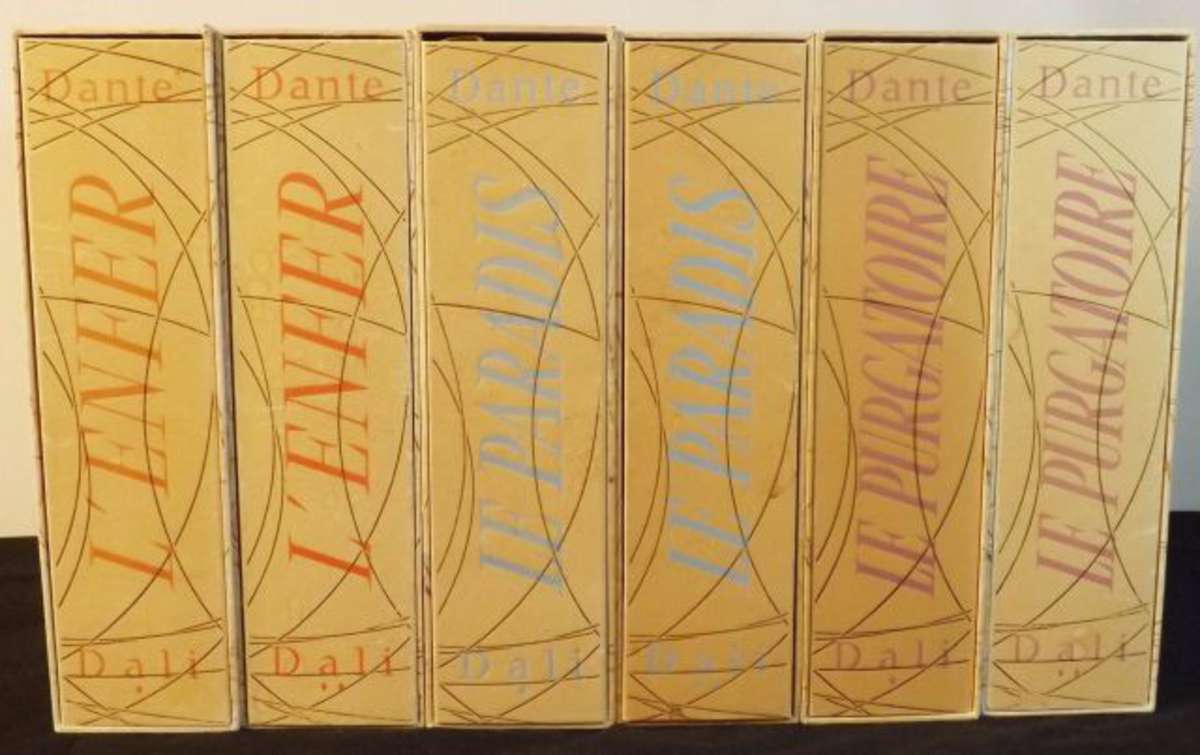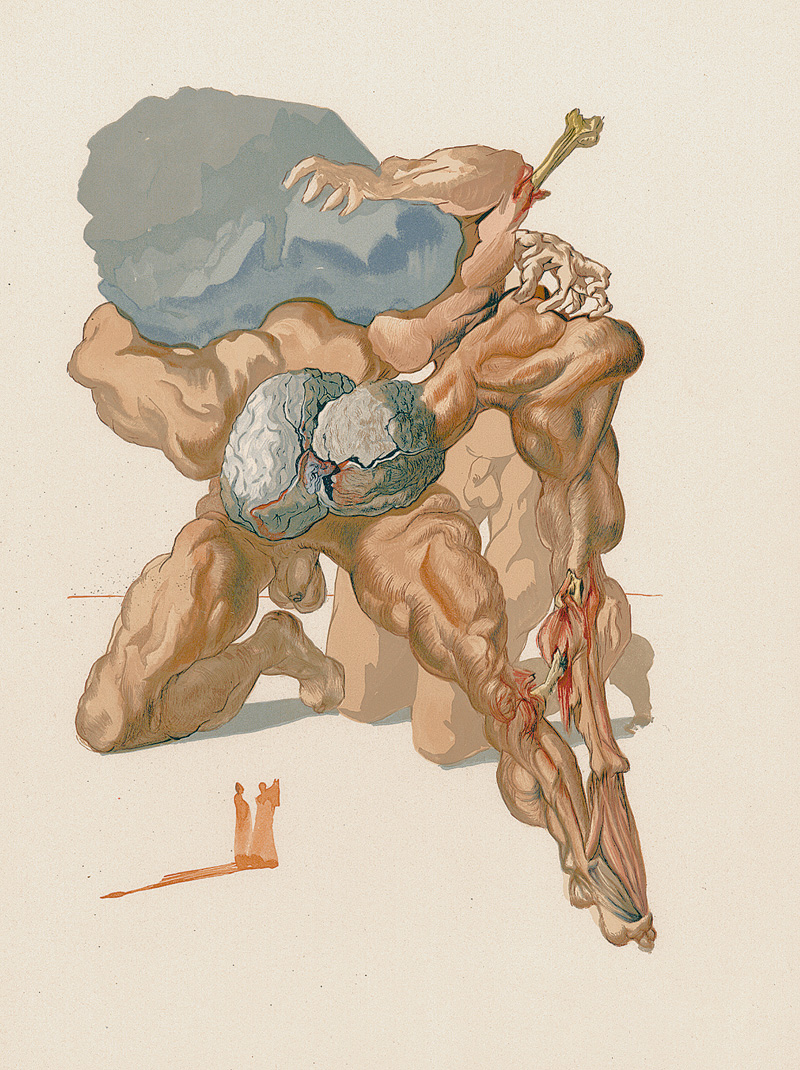DANTE ALIGHIERI. De la volgare eloquenzia [translated by Giovanni Giorgio Trissino]. Vicenza: Tolomeo Janiculo, January 1529. Folio, 288 x 180 mm. (11 5/16 x 7 1/8 in.), modern half morocco, library marks in pencil on title, small wormhole through a1-2 grazing a letter, light mostly marginal foxing . FIRST EDITION, printed in Arrighi's italic type, woodcut printer's device on title. Adams D-121; G. Mambelli, Gli Annali delle Edizione Dantesche (Bologna 1931), 881; cf. Harvard/Mortimer Italian 507. "C MF," 18th-century stenciled ink monogram and stamped arms on title and a2r. The original Latin text of Dante's great philological treatise justifying the adoption of the Tuscan dialect as the national language of Italy was not printed until 1577, in Paris. Trissino's translation is often found bound with a group of his own philological works, also printed by Janicolo in 1529, in the beautiful "cancelleresca" type of the great calligrapher-printer Lodovico della Arrighi, whose matrices Trissino had brought with him from Rome. "For the purpose of printing Trissino's texts, Arrighi added to his italic the new characters proposed by Trissino for the Italian alphabet. Nothing is known of Arrighi after the sack of Rome in 1527... and for new editions of his works, Trissino was forced to find another printer" (Mortimer, p. 701). Provenance
DANTE ALIGHIERI. De la volgare eloquenzia [translated by Giovanni Giorgio Trissino]. Vicenza: Tolomeo Janiculo, January 1529. Folio, 288 x 180 mm. (11 5/16 x 7 1/8 in.), modern half morocco, library marks in pencil on title, small wormhole through a1-2 grazing a letter, light mostly marginal foxing . FIRST EDITION, printed in Arrighi's italic type, woodcut printer's device on title. Adams D-121; G. Mambelli, Gli Annali delle Edizione Dantesche (Bologna 1931), 881; cf. Harvard/Mortimer Italian 507. "C MF," 18th-century stenciled ink monogram and stamped arms on title and a2r. The original Latin text of Dante's great philological treatise justifying the adoption of the Tuscan dialect as the national language of Italy was not printed until 1577, in Paris. Trissino's translation is often found bound with a group of his own philological works, also printed by Janicolo in 1529, in the beautiful "cancelleresca" type of the great calligrapher-printer Lodovico della Arrighi, whose matrices Trissino had brought with him from Rome. "For the purpose of printing Trissino's texts, Arrighi added to his italic the new characters proposed by Trissino for the Italian alphabet. Nothing is known of Arrighi after the sack of Rome in 1527... and for new editions of his works, Trissino was forced to find another printer" (Mortimer, p. 701). Provenance














Testen Sie LotSearch und seine Premium-Features 7 Tage - ohne Kosten!
Lassen Sie sich automatisch über neue Objekte in kommenden Auktionen benachrichtigen.
Suchauftrag anlegen